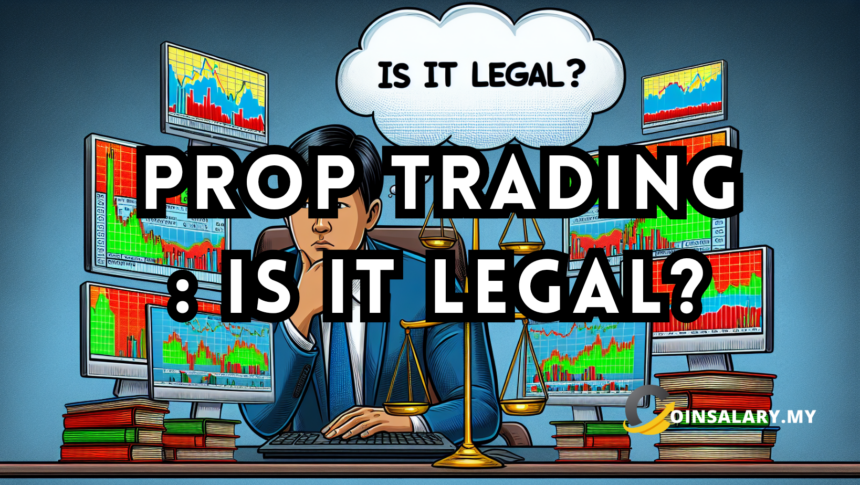Prop trading, short for proprietary trading, involves financial firms trading stocks, bonds, currencies, commodities, or other financial instruments using their own capital rather than client funds. This practice can be highly lucrative, but it also raises questions about its legality and regulatory status. In this article, we’ll explore the legality of prop trading, its regulatory framework, and what traders and firms need to know.
Understanding Prop Trading
Before diving into the legality, it’s essential to understand what prop trading entails. In prop trading, firms use their own money to make trades and investments, aiming to generate profits. This contrasts with traditional brokerage services, where firms make trades on behalf of clients and earn commissions. Prop trading firms employ skilled traders who leverage the firm’s capital to take advantage of market opportunities.
Is Prop Trading Legal?
Yes, prop trading is legal in most countries, including the United States, the United Kingdom, and many other major financial markets. However, it is subject to a complex web of regulations designed to ensure market integrity, protect investors, and maintain financial stability.
Regulatory Framework
The legality of prop trading hinges on adherence to regulatory requirements. Here’s an overview of how prop trading is regulated in some of the world’s leading financial markets:
1. United States
In the U.S., prop trading is legal but regulated by several agencies, including the Securities and Exchange Commission (SEC) and the Commodity Futures Trading Commission (CFTC). The Dodd-Frank Wall Street Reform and Consumer Protection Act, enacted in response to the 2008 financial crisis, introduced the Volcker Rule, which restricts the ability of banks to engage in prop trading. The rule aims to limit the risks banks can take with their own capital, thus protecting depositors and the financial system.
2. United Kingdom
In the UK, the Financial Conduct Authority (FCA) oversees prop trading activities. The FCA ensures that prop trading firms adhere to rules designed to maintain market integrity and protect consumers. The UK’s approach to regulation emphasizes transparency, risk management, and the proper conduct of trading activities.
3. European Union
The European Union regulates prop trading through directives such as the Markets in Financial Instruments Directive (MiFID II). MiFID II aims to increase transparency in financial markets and enhance investor protection. It requires prop trading firms to adhere to stringent reporting standards, risk management practices, and conduct regulations.
Key Considerations for Traders and Firms
For traders and firms engaging in prop trading, understanding and complying with regulatory requirements is crucial. Here are some key considerations:
1. Licensing and Registration
Ensure that the firm is properly licensed and registered with the relevant regulatory bodies. This compliance is necessary to legally conduct prop trading activities.
2. Risk Management
Implement robust risk management practices to safeguard the firm’s capital and ensure compliance with regulatory standards. Effective risk management can also help in mitigating potential losses.
3. Transparency and Reporting
Maintain transparency in trading activities and adhere to reporting requirements. Regulators often require detailed reporting of trades and positions to monitor market activities and ensure compliance.
4. Ethical Conduct
Adhere to high standards of ethical conduct to maintain trust and integrity in the financial markets. This includes avoiding conflicts of interest and ensuring fair trading practices.
Conclusion
Prop trading is legal and widely practiced in many major financial markets around the world. However, it is subject to stringent regulatory oversight to ensure market stability and protect investors. By understanding the regulatory framework and adhering to best practices, traders and firms can successfully navigate the complexities of prop trading while remaining compliant with the law.




